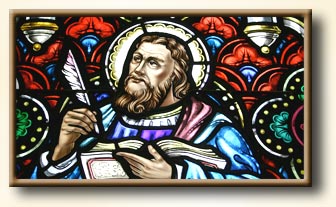|
The word “saints” can be written either of two ways. With a small “s”, as in the preceding sentence, the saints are simply the people of God -- those under his obedience, consecrated to his service, through vows and Church membership. Hence we are all saints, as long as we strive to be faithful to our baptismal and confirmation vows. Saints in this sense are mentioned throughout the Bible, from Deuteronomy to Revelation.
When written with a capital “S”, however, Saints refers to those people of extraordinary goodness, steadfastness and courage, whose lives have particularly enriched the Christian Church. They provided examples of service, devotion and tenacity for all of us to admire and follow so far as we care able.
In times past, these Saints have been recognized officially by the Church, and their special holiness has been proclaimed by a process known as canonization. Anglican formularies have never explicitly spoken on this subject, but Anglican practice has always appeared to recognize and accept as Saints those great Christians so accepted and proclaimed by the Roman Church before the Reformation. Indeed, the Book of Common Prayer sets aside in its Calendar no less than seventeen days on which special services are enjoined in commemoration of nineteen Saints. In addition, St. Mary is twice especially remembered, for the Annunciation and for her Purification. Then to make sure that we overlook none of the Saints, there is a particular day of “All Saints,” observed on November 1st.
The beautiful Collect appointed for the Holy Communion on All Saints Day is particularly instructive as to how Anglicanism views the preeminent roles of the Saints in our life and tradition.
“O Almighty God, who has knit together thine elect in one communion and fellowship, in the mystical body of thy Son Christ our Lord; Grant us grace so to follow thy blessed Saints in all virtuous and godly living, that we may come to those unspeakable joys which thou hast prepared for those who unfeignedly love thee; through the same thy Son Jesus Christ our Lord. Amen”.
It is not easy to live up to what we believe, what we have promised and what in our deepest hearts we want to do. The Saints stand ever before, above, and with us as examples, as great ones now with God and ever ready to help us in prayer and patronage. They are the heroes of the Faith, and we all need heroes to inspire us.
Anglicanism has not officially proclaimed any Saints since the Reformation. It proclaims certain of the Saints as worthy of remembrance through a service of Holy Eucharist on days set apart for that purpose by the Book of Common prayer. It places no obstacle in the way of remembrance of the other officially-proclaimed Saints, and they are remembered in many Anglican churches. Many names have received honor since the Reformation, Saints not in title but in quality of faith and service, and in the hearts of many Anglicans; Cranmer, Laud, Charles I, Wilberforce, Keble, the Wesleys, and many others could be cited. Likewise in America, Anglican Churches have permitted and even encouraged special honor and recognition of such great Christians as Seabury, White, Kemper and Brooks.
The Apostles provide a core of Prayer Book remembrance and the circle then widens in every direction of time, place and history. In honor to these great Christians and to keep the flame of our own determination bright, all Anglicans should, at the very minimum, join in the Holy Communion on the days appointed in the Book of Common Prayer.
|



